
Women in research have made significant contributions to science, breaking barriers and advancing our understanding of the world around us. Despite facing discrimination and obstacles, women in research have persevered and excelled in their chosen fields, leaving an indelible mark on science, medicine, and technology.
This Women’s Day, we celebrate 10 women in research, highlighting their ground-breaking discoveries, innovative ideas, and tireless dedication to advancing knowledge and improving lives. From Nobel Prize winners to unsung heroes, these women in research have paved the way for future generations of academics and continue to inspire us with their brilliance, passion, and commitment to excellence.
Join us as we honor these remarkable women in research and their extraordinary contributions to the world.
1. Shirly Ann

Theoretical physicist Shirley Ann Jackson was the first African-American woman to ever receive a PhD from MIT and is remembered for her invaluable contribution to the field of semiconductor systems, telecommunications research and particle physics. She is also the first African-American woman to serve as Chairman of the U.S. Nuclear Regulatory Commission. Shirley served in many other leadership roles, won multiple awards, and was even called “perhaps the ultimate role model for women in science” by the Time magazine.
In her own words, Shirley says “I could give in to ignorance or persevere and pursue excellence. I chose the latter and made physics my ‘trade’.”
2. Margaret Hamilton
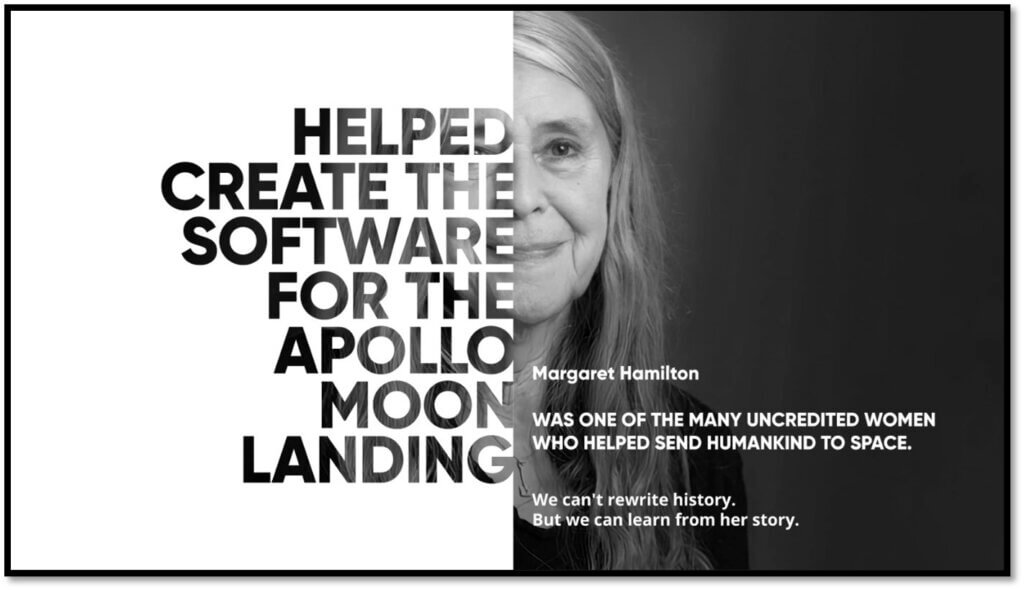
Lead software designer for NASA’s celebrated Apollo program, Margaret Hamilton designed the on-board flight software that guided astronauts Neil Armstrong and Buzz Aldrin successfully over the dusty crust of the moon, making them the first humans to step foot on the moon. As one of the first established computer software programmers, she is often credited with coining the term “software engineering”. Margaret also founded two software companies—Higher Order Software and Hamilton Technologies, both in Cambridge, Massachusetts.
In 2016, Hamilton was honored with the Presidential Medal of Freedom, the highest civilian award in the United States, for her contribution to making the Apollo Moon mission a success.
3. Lydia Villa-Komaroff
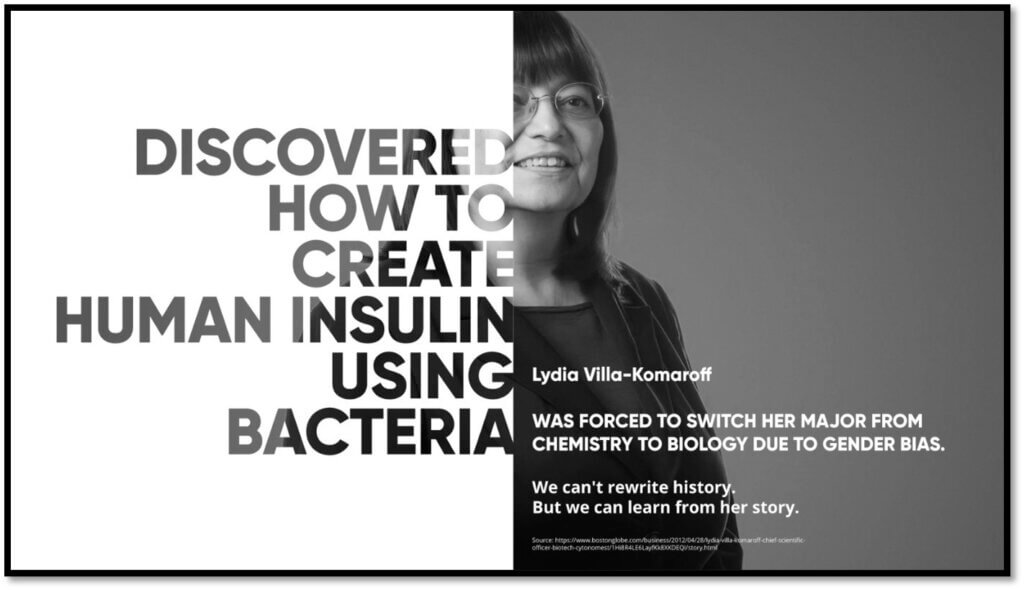
Lydia Villa-Komaroff is a pioneer in the field of molecular biology who, despite facing opposition, discovered that bacteria could be engineered to produce human insulin. She is a founding member of the Society for the Advancement of Chicanos/Hispanics and Native Americans in Science (SACNAS). Currently, she is a nominating committee chair and a senior advisor. She also sits on the Keck Graduate Institute board.
Lydia was the third Hispanic woman to receive a doctoral degree in the sciences and is a founding member of the Society for the Advancement of Chicanos/Hispanics and Native Americans in Science (SACNAS).
4. Gertrude Elion

Gertrude Elion won the Nobel Prize in Physiology/Medicine in 1988 for the many life-saving drugs she invented to alleviate human suffering. Gertrude graduated with a chemistry major into a world that didn’t want women in the laboratory. Here she is now, with her perseverance and grit, a celebrated researcher who developed the drug design that’s saving the lives of millions who are suffering from leukemia, malaria, organ transplant rejection, herpes and several other illnesses.
With her name on 45 patents for live-changing drugs, Gertrude is also known to have transformed medical research, by introducing a more rational and scientific approach to drug development.
5. Katalin Karikó
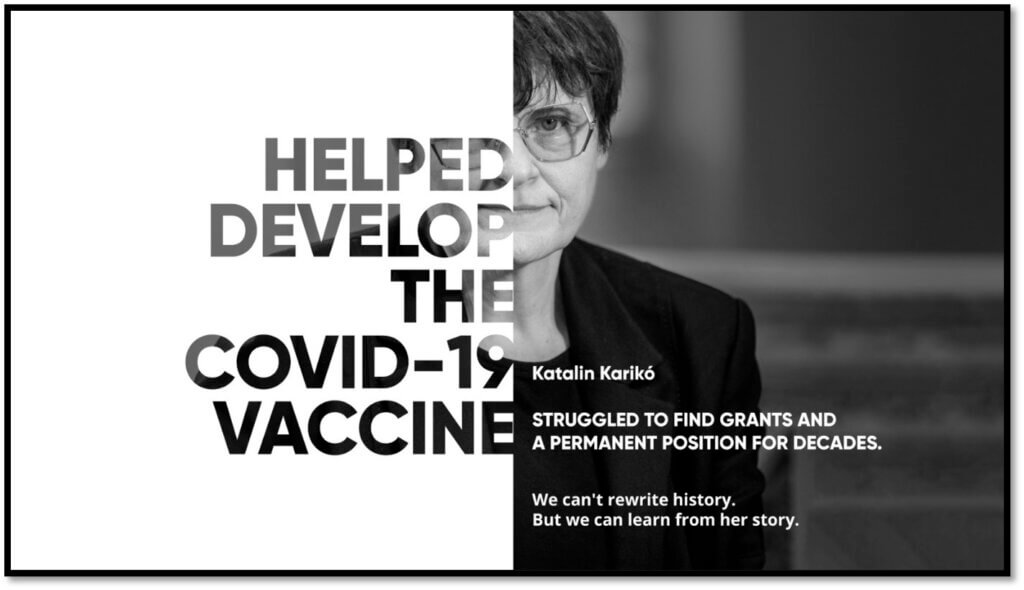
Hungarian-born biochemist Katalin Karikó is one of the coronavirus vaccine heroes (read heroines) who helped develop the messenger RNA (mRNA) technology that was used to produce the highly effective COVID vaccines made by Pfizer and Moderna. Katalin spent many years on this research despite facing skepticism and a lack of funding. Ultimately, her efforts paid off, and she laid the groundwork for the overwhelmingly effective vaccines that are probably the world’s surest way out of the COVID pandemic.
Katalin received numerous awards for her work in the past couple of years, including the 2022 Vilcek Prize for Excellence in Biotechnology. She now aims to use her fame to inspire other researchers and highlight the importance of research funding and science education.
6. Carolina Vera
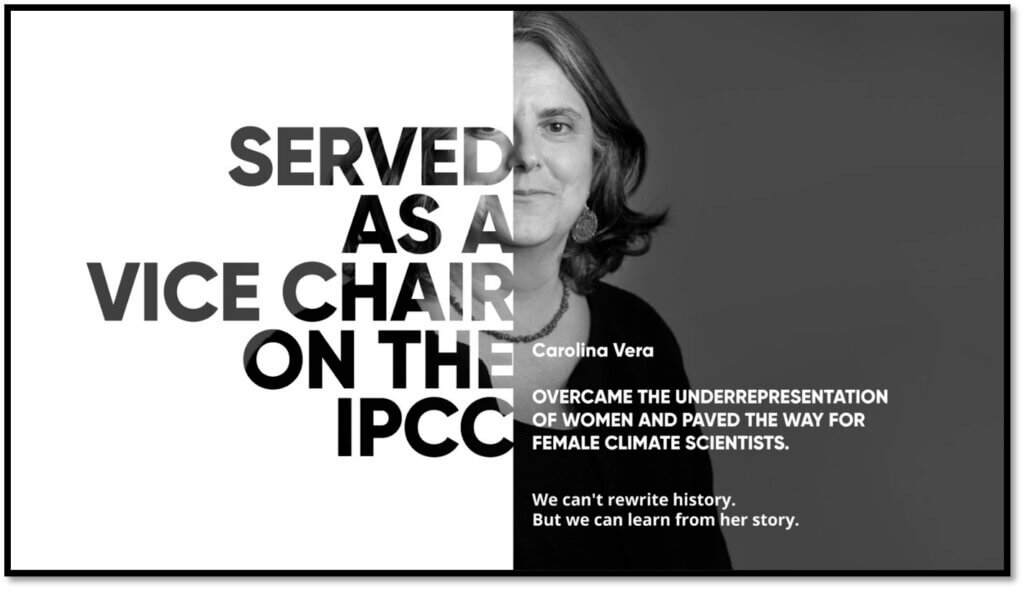
Argentinian climate scientist, Carolina Vera emerged as a prominent voice for underrepresented groups as part of the Intergovernmental Panel on Climate Change (IPCC). Vera’s poor experiences as a woman in STEM, with her often being the only woman in official meetings, inspired her to fuel a change. By overcoming the many obstacles in her way, Vera paved the way for those who followed in her footsteps.
Through her work, she aims to empower women in research and encourages success on the basis of merit and excellence regardless of gender or geographical biases.
7. Rajeshwari Chatterjee
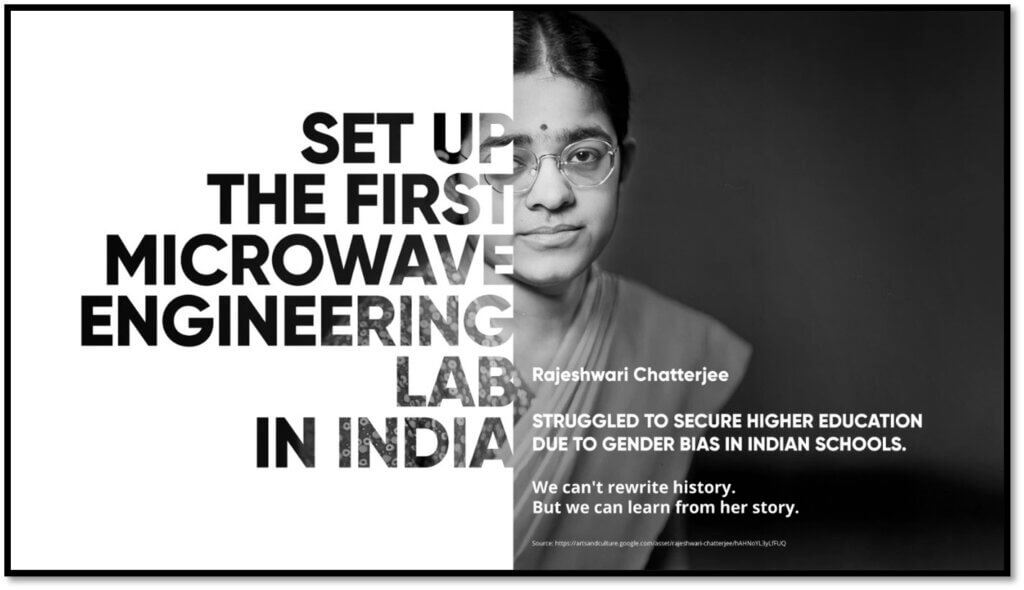
Rajeshwari Chatterjee was the first woman engineer from the city of Karnataka, India, leading the way for women in research. In an interview at the Indian Institute of Science (IISc), for a project fellowship she had applied for, there was a huge debate about accepting her as she was the first woman candidate to have attended the interview. But her intellectual abilities could not be ignored and eventually she was accepted.
She later joined the Department of Electrical Communication Engineering at the Indian Institute of Science (IISc) as a faculty member, pioneering work on microwave engineering – the first such research in India. She went on to become the chairperson of the Department of Electrical Communication Engineering in the same university.
8. Maria Klawe
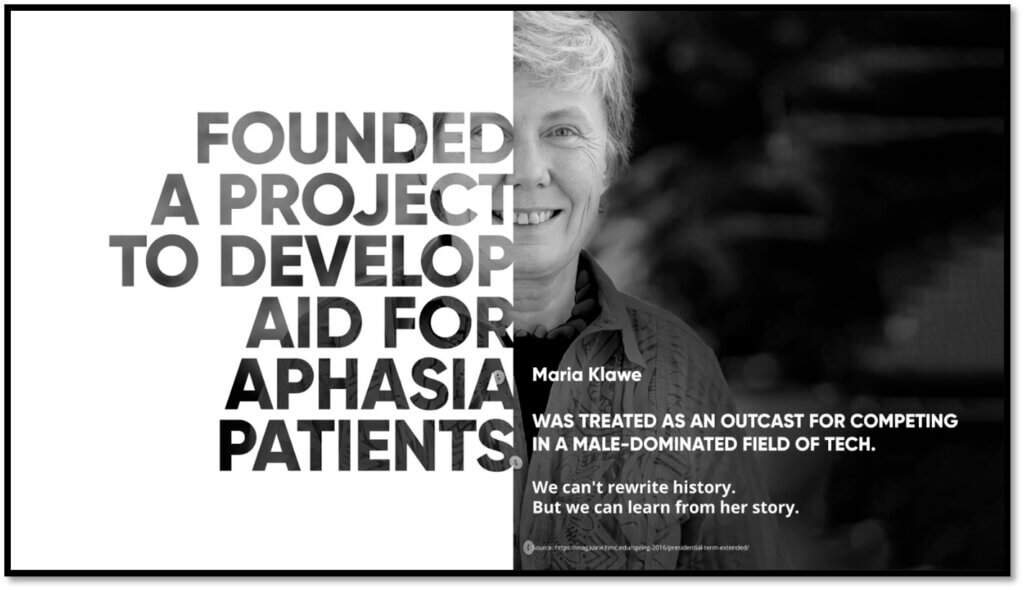
Renowned computer scientist and scholar Maria Klawe is known for her significant contributions in the field of computer science and mathematics. But her journey as a woman in research was not an easy one, which made her a determined advocate for women in STEM.
She became the fifth president of the Harvey Mudd College and its first female leader since the institute was founded in 1955. During her tenure, Klawe undertook an experiment to bolster female enrollment at the institution, resulting in remarkable success. The experiment yielded an increase in the percentage of women majoring in computer science from less than 15% to over 40%.
9. Klára Dán von Neumann

Hungarian-born and self-taught Klára Dán von Neumann is remembered today as one of the first computer programmers. Her early contributions at a time when female representation in STEM was negligible has paved the way for big scientific breakthroughs. In fact, every computer program running today has descended from the code Klára penned over 70 years ago.
Klára played a prominent role in transforming the ENIAC (Electronic Numerical Integrator and Computer) into the first stored-program computers, similar to today’s personal computers, and writing the intricate code that makes modern weather prediction possible today.
10. Sally Ride
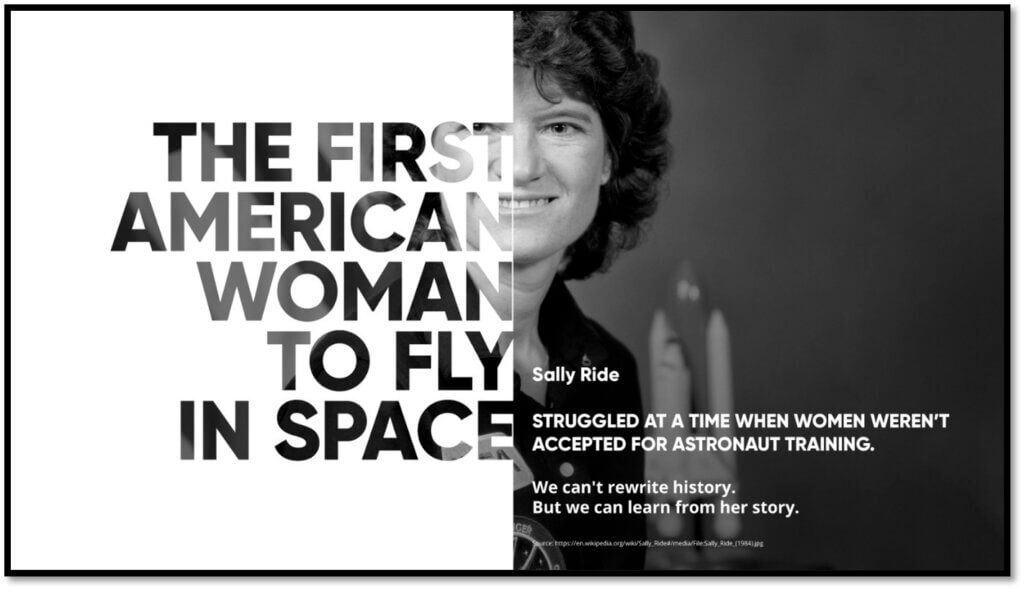
Astronaut and physicist Sally Ride was the first American woman and the youngest American to fly into space. Sally studied at Stanford University, competing with 1,000 other applicants for a spot in NASA’s astronaut program, before joining the Challenger shuttle mission on June 18, 1983. This mission involved successfully deploying and retrieving satellites in space making Sally also the first woman to operate the shuttle’s robotic arm. She was chosen for the another Challenger mission in 1984, which gives her the honor of being the first American woman to travel to space for a second time.
These were just 10, but there are thousands of other women in research who have made significant contributions to society. On Women’s Day, we take this opportunity to acknowledge their resilience, strength, and tenacity in breaking the glass ceiling for women in research. And while we celebrate and support women in research, it is important to remember that equality is not just a ‘woman’s issue’ but a human issue. By working together to create a more inclusive and equitable society, we can ensure that every woman in science and beyond has the opportunity to reach her full potential.
Let’s continue to lift each other up, celebrate our accomplishments, and advocate for a world where every woman is valued and respected.
Happy Women’s Day!


